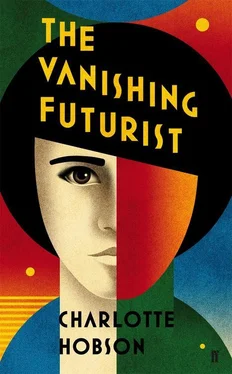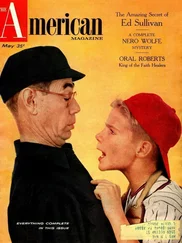The ‘compression’, as it turned out, had its advantages. In November the first snows fell and the reality of War Communism under General Winter began to bite. During the winter of 1917–18, we had bartered for firewood and burnt old fences. In 1918–19 wooden bathhouses, sheds, duckboards and shop fronts were burnt as well as whole wooden houses – their inhabitants given twenty-four hours to clear out with their belongings. Moscow’s parks were decimated and the Boulevard Ring lost half its avenues. We congregated in the study for our evening meetings and soon to sleep as well, all the mattresses arranged in a star shape around a small metal stove, or burzhui (bourgeois person; for its fat stomach, I assume). The stovepipe shot vertically upright and out through the old chimney breast, smoke leaking out of every joint. The old ladies, against their will, came to sleep around the stove too.
‘What will my cousin say when he sees how you have treated us?’ complained Anna Vladimirovna bitterly to me. ‘It’s a disgrace! Don’t you know I am a Dolgoruky on my mother’s side?’
In vain I tried to explain to her that this was the best we could do. Poor things, they suffered from the cold more than any of us.
One evening Sonya produced a telegram from Constantinople.
‘All aboard the Eloise sailing Marseilles stop Mama’s health not good lack medicines and treatments here stop details on arrival stop 4 x Kobelevs.’
I closed my eyes partly against the fumes of the nyedyshalka , and partly against the tears that welled up against my lids. Since peace had been declared in Europe we had heard that hordes of refugees were leaving Russia for Turkey, France or New York. I hated to imagine their journey with an ill Mrs Kobelev. Dima would now be thirteen, Liza fifteen; old enough to help. Old enough to worry.
‘I would like to have the Commune’s agreement,’ broke out Sonya unexpectedly. ‘I want to leave my job. It’s such a waste of time! I didn’t leave my parents and my brother and sister on their own to fritter away my days in that office.’
I agreed with her. She was working in a government department – the Committee for Sovietisation of the Caucasian Nationalities. As the Caucasus was still overrun by civil war the business of Sovietisation was being carried out by the Red Army, who were fighting in the mountains, killing and being killed in great numbers. Meanwhile Sonya’s colleagues consisted of a few officials who saw it as a reasonable way to pass their days, thanks to the office’s ceramic stove which they kept alight with Tsarist reports on Caucasian questions. The promise of a ration, however erratic, and the protection of a government position, however sketchy, was enough to keep them at their desks at least for part of each day.
‘What would you do instead?’ asked Fyodor.
Slavkin spoke up. ‘I need a co-worker on the Capsule. I’m making progress, but it will go faster—’
‘But we need your ration, Sonya,’ objected Fyodor. ‘We can’t feed ourselves as it is.’
‘Yes, I know,’ she said. ‘I thought I could make a trip to Mikhailovka. Some of the peasants are still well disposed towards our family, you know. I think they would help us.’
‘Don’t be a fool!’ Pasha exclaimed. ‘It’s much too dangerous. Please, no, Sonya.’
‘From each according to his ability,’ Fyodor chipped in, raising his voice. ‘Each of us must contribute to the commune. We can’t carry any dead weights.’
‘I will do whatever the commune thinks best,’ Sonya spoke up again. ‘But as I say, I didn’t come back from the south to waste my time. I can hardly bear to see their greasy faces in the department – what clever fellows we are, they seem to say, keeping ourselves warm, our feet under the table, while those fools out there starve—’
‘If I succeed in the task I am now setting myself,’ said Slavkin calmly, ‘the Revolution will, I promise you, make a huge leap forward. This, after all, is our chief aim, is it not? We must keep our eyes on our goal.’
‘But – but is Sonya really the best person to help you?’ I put in. ‘She has little or no scientific education, and—’
‘She will do very well,’ Slavkin said definitively.
‘Wouldn’t I be more suitable?’ I persisted. ‘I could rearrange my English lessons. I at least have an elementary knowledge of physics.’
Slavkin turned his back on me, saying casually, ‘No, no, you must continue with your teaching. I will explain to Sonya what she needs to know.’
Sonya began work with Slavkin a day or so later, and with her, he spent longer hours than ever closeted in his workshop.
After making a careful inventory of our stores we decided that in order to survive the winter we would have to go bagging. The whole Russian nation would have starved without bagging under War Communism, despite the fact that it was illegal. It meant setting out into the countryside with a bag slung over your shoulder and bartering with any peasants you might come across – a few pounds of grain in return for the family silver. Talk in the food queues was full of terrible fates that had befallen ordinary folk, fathers of families, young boys, babushki , who had gone bagging and been caught by the flying brigades – Red Guards who searched the trains and not only confiscated any goods people might have collected, but quite often shot the bagmen too. But as the alternative was starvation, the tide of hopefuls with bags did not abate.
Pasha and Volodya volunteered to be the bagmen.
‘I’ll be able to deal with the brigades,’ Volodya said. ‘I know how to speak to the lads.’
‘And I’ll hide behind him,’ said Pasha. I laughed.
‘You’re the child of fortune,’ I told him. ‘Nothing could penetrate your halo of good luck, undeserved though it is.’
Vera and I stitched several pouches into their clothes to carry their goods for barter – a gold necklace of Anna Vladimirovna’s, six silver teaspoons, some lengths of cloth, some Kerenkas and other bits and bobs. We also sewed good strong double-lined sacks, in hope.
Later the same week we accompanied them to the railway station, marching in formation and singing Revolutionary songs; Nikita thought this part of the IRT’s duty of enlightenment, now we were becoming so well known. Our commune, in Slavkin’s words, was to shine as a beacon among the darkness of contemporary society; it should mould not only ourselves, but should attract others, through our example, to the communal life.
It may have been my lack of charity, but I was not convinced that our marching and singing inspired passers-by with anything other than amusement. Grunters in the park, PropMash Doctors, and now a rather out-of-tune marching band – it was no wonder that one article about the IRT described us as avant-garde chudaki – cranks. Never mind: in this way we saw our boys off on the train. Verochka bathed Volodya’s face with tears and made a surreptitious little sign of the cross over him. Pasha kissed his sister, and made me a funny little bow, and we sent them on their way with renditions of ‘Boldly, comrades, in step’, and ‘Break the fetters, set me free, I’ll teach you to love freedom’.
Each day, on my return from work, the quietness of the house was noticeable, the dampening of all our spirits. Sonya and Slavkin worked long hours, and although their behaviour was entirely proper in our evening meetings, I was tortured by their casual reminders to each other, the tag-ends of their working conversations. One week passed, and two, and three, without word from our bagmen.
‘This commune’, Fyodor shouted suddenly one evening, ‘is deteriorating into some kind of synod .’
Читать дальше





![Майкл Муркок - Спящая волшебница / The Sleeping Sorceress [= Участь Белого Волка, Рыцарь Хаоса, The Vanishing Tower]](/books/327544/majkl-murkok-spyachaya-volshebnica-the-sleeping-sorc-thumb.webp)






